38 Korean Phrases All Beginners Need To Know
Basic Korean Phrases || A Simple, Easy To Follow Guide

Looking for some basic Korean phrases to learn?
You’ve come to the right place!
No matter how hard we study new words or grammar points in our target language, we won’t get far in the journey to fluency unless we familiarise ourselves with the way natives speak in their everyday lives.
Even if we understand every word in a Korean sentence, its true meaning could still go over our heads because we’re not used to the Korean way of speech.
In this article, we will introduce you to the most basic phrases in Korean language that will give you a head start in your language journey.
Korean Phrases | Greetings in Korean
Korean Phrases | Asking a Name
Korean Phrases | Asking for Age
Korean Phrases | How to Thank Someone
Korean Phrases | I’m Sorry / Excuse Me in Korean
Korean Phrases | How to Say Goodbye
Korean Phrases | Useful Korean Phrases
Korean Phrases | FAQ’s
Greetings in Korean
Let’s start with the most important part – we need to greet people in order to start talking with them.
I’m sure all of you are familiar with the most basic form of greeting in Korean – 안녕하세요 (an-nyeong-ha-se-yo).
If you want your greeting to sound more formal, you should use the form – 안녕하십니까? (an-nyeon-ha-shim-ni-kka?).
While talking to your friends you can use the shortest and least formal form – 안녕! (an-nyeong!).
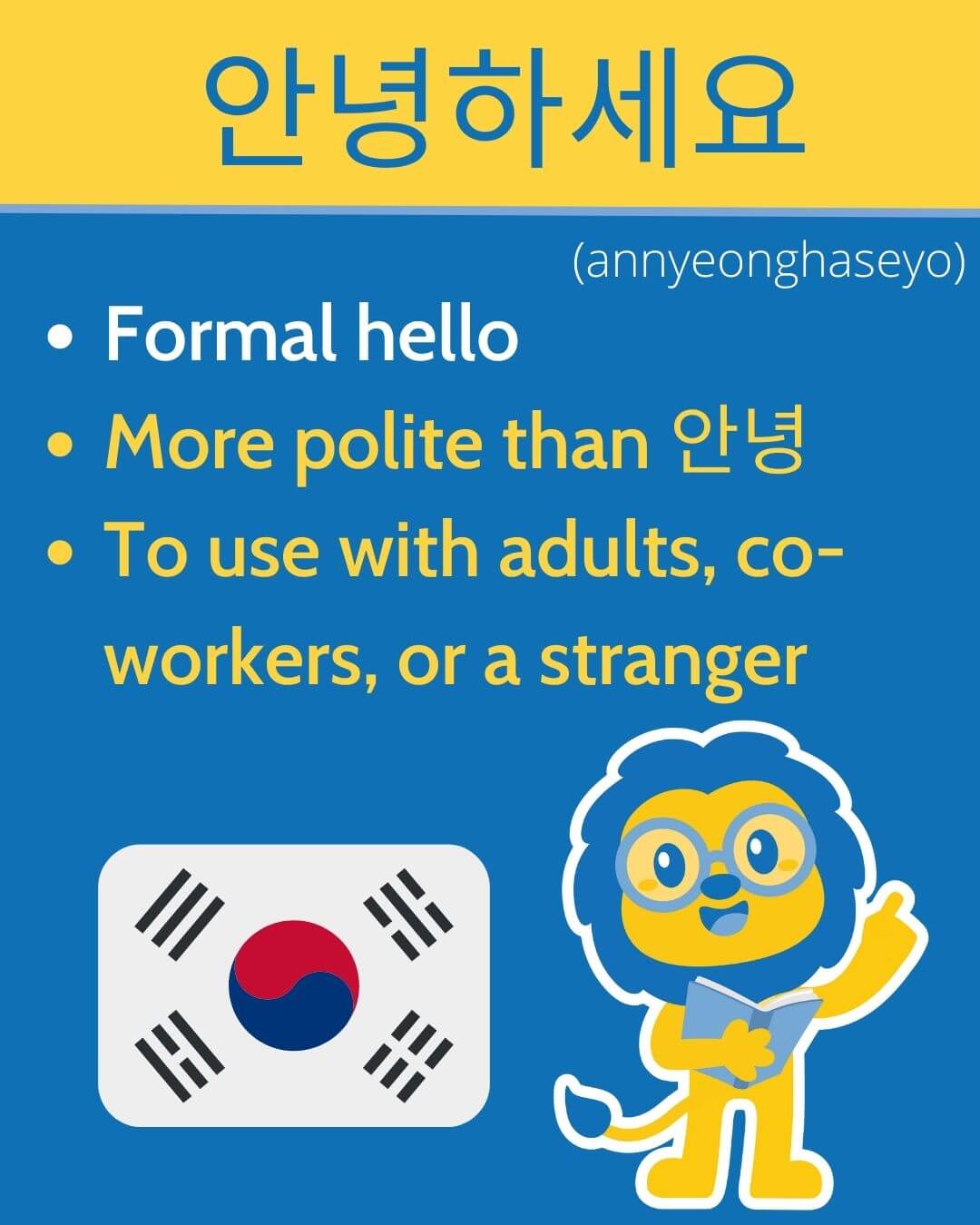
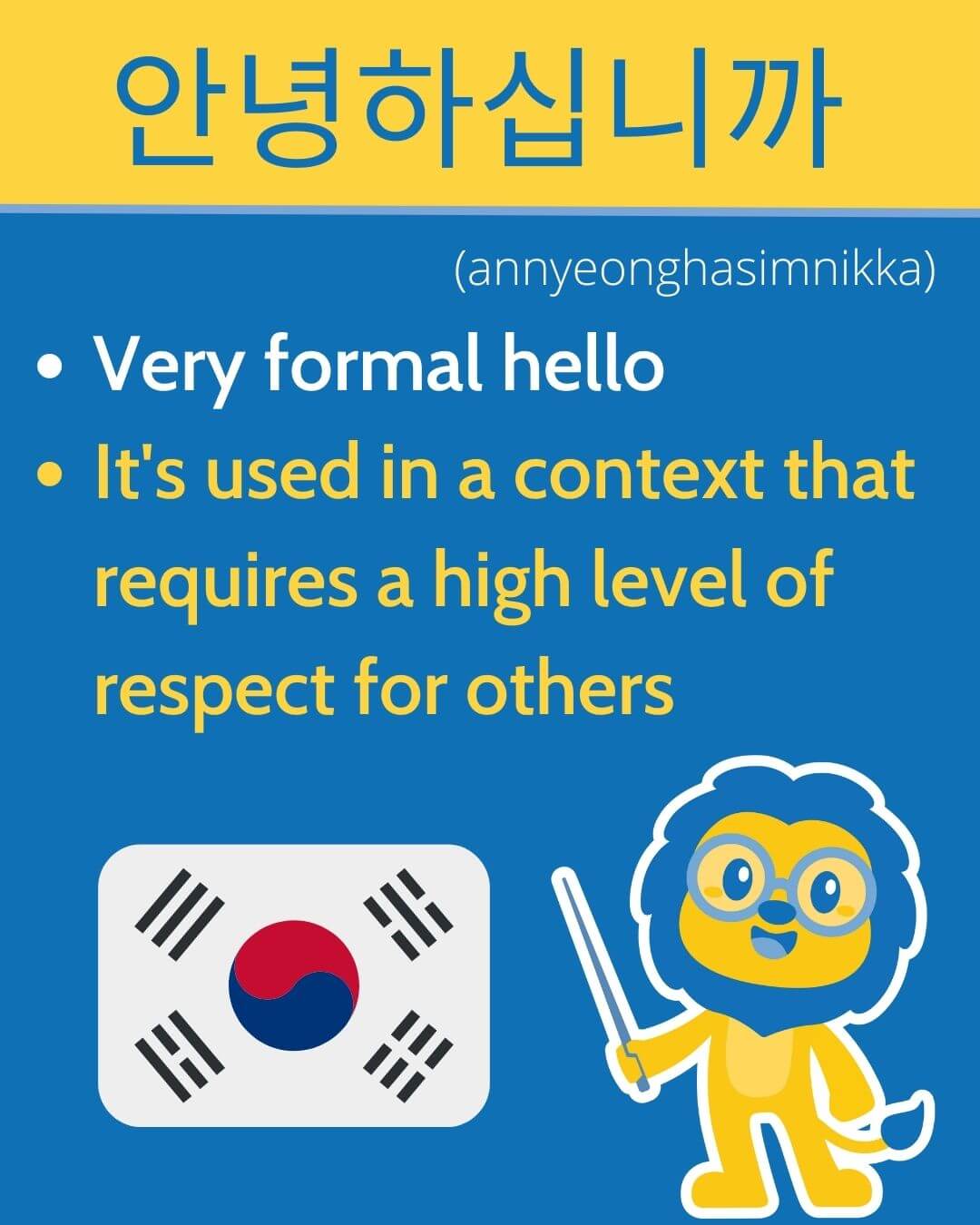
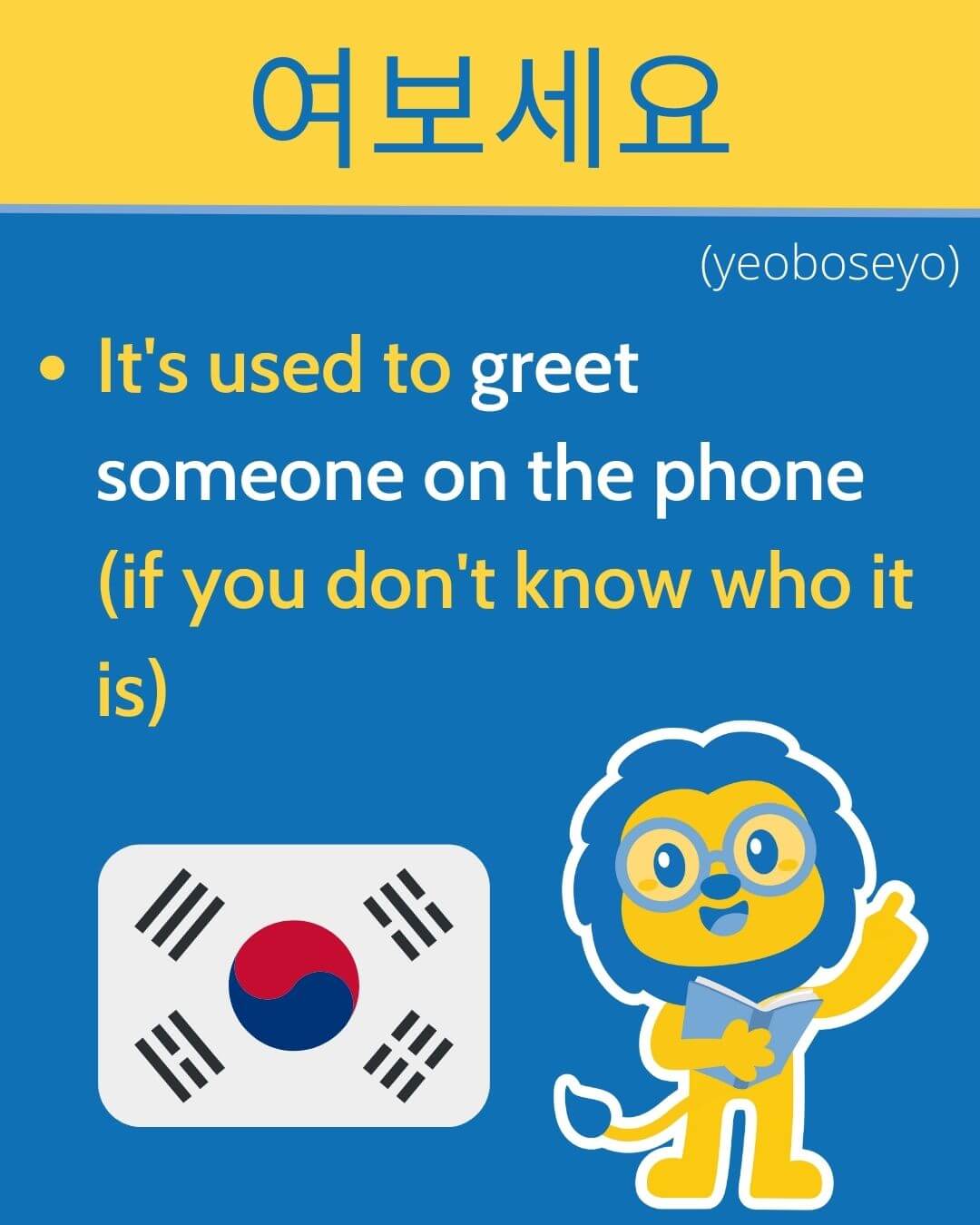
Nice to meet you is 반갑습니다 (ban-gab-seum-ni-da).
If you want to flaunt your skills you could add a little bit of spice and say – 만나서 반갑습니다 (man-na-seo ban-gab-seum-ni-da.)
If it’s not your first meeting with the person, you should ask them how they’ve been.
‘How are you?’ in Korean would be:
- 잘 지내요? (jal ji-ne-yo?) (informal).
- 잘 지내셨어요? (jal ji-ne-syeo-seo-yo?) (formal/honorific).
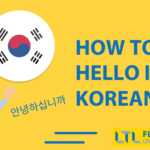
How to Say Hello in Korean // It’s Not As Simple As It Sounds
Learning Hello in Korean isn’t as easy as learning just one word. In Korean, there are multiple ways to say hello! Don’t worry, we are here to explain.
Asking for a Name | Basic Korean Phrases
Now let’s ask for the person’s name.
BONUS CONTENT | Check out our article about Korean Names to learn more about Korean culture.
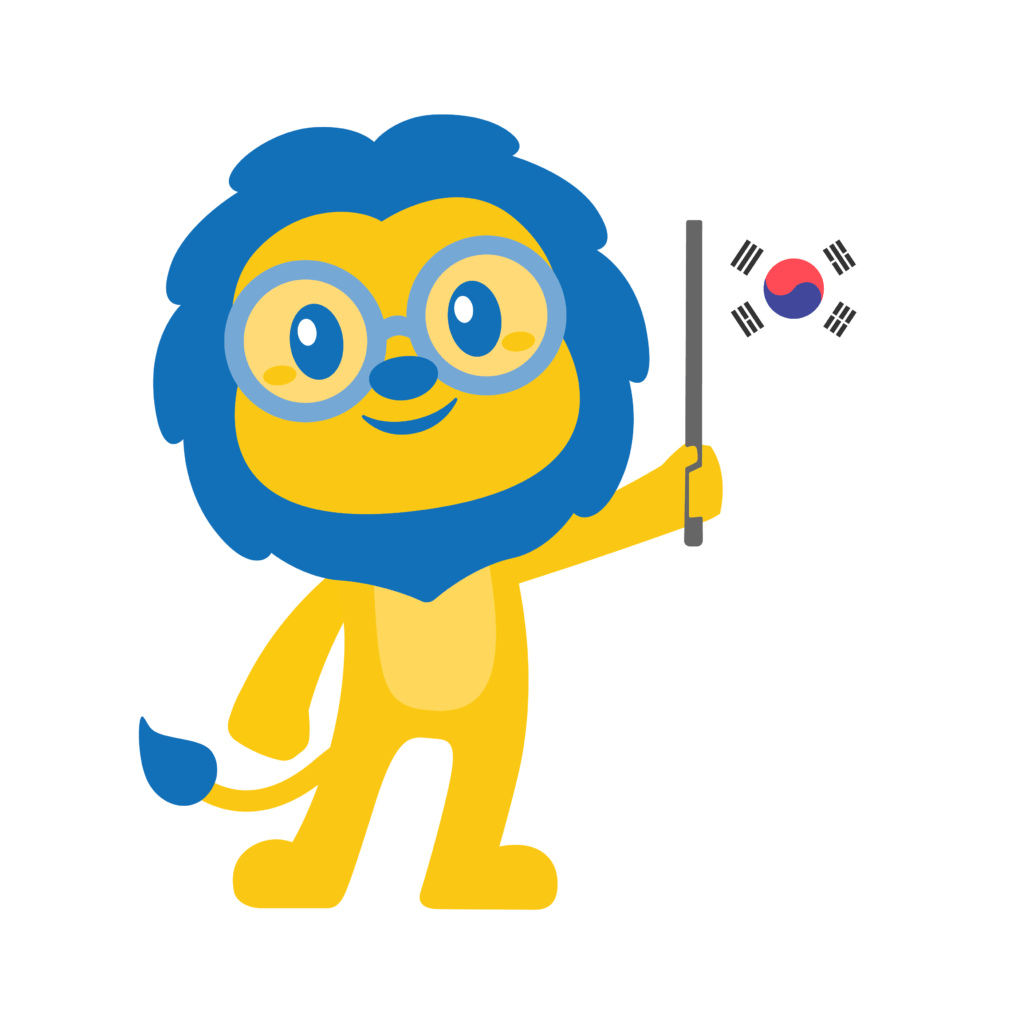
We’ll introduce ourselves as ‘Name’- 입니다 ‘ (Name-im-ni-da), or the more sophisticated version ‘Name’- 라고 합니다 ’ (Name-ra-go ham-ni-da) – which means ‘I am called Name’.
But to ask the other person’s name, you should use one of these phrases, depending on how formal and respectful you want to sound.
-
이름이 뭐예요?
(i-reum-I mwo-ye-yo?)
What’s your name? Use this simple phrase when talking with people your age, or people you’d like to befriend. -
성함이 어떻게 되세요?
(seong-ham-I eo-tteo-ke doe-se-yo?)
This phrase will be useful if you’re talking to someone older, and much more respectable than you are.
성함 (seong-ham) is a honorific form of the word ‘name’ and should be used in formal or official situations.
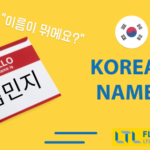
Korean Names // What are the Naming Customs in Korea?
Korean names are usually composed of three characters, but do you know about their meanings? What about generation names and clans? Follow our guide.
Asking for Age
What about the age? The role of our age is hugely important in Korean society.
But why?
Whilst it’s not so common in the west to divulge your age, in Korea it is. This way people will determine in which honorific level to speak to you.

Among friends or younger people the phrase ‘How old are you?’ would be “ 몇 살이에요? ” (myeot sar-i-e-yo?).
But with people older, you should use a more formal phrase.
In this case, always say “ 나이가 어떻게 되세요? ” (na-i-ga eo-tteo-ke doe-se-yo?).
This is an example of a basic exchange in Korean:
안녕하세요, 저는 NAME입니다. 만나서 반갑습니다!
(An-nyeong-ha-se-yo, jeo-neun NAME-im-nida. man-na-seo ban-gab-seum-ni-da.)
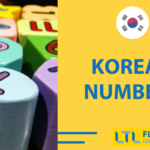
Korean Numbers // Discover the Two Numbering Systems Used (with Quiz)
There are two numbering systems in Korean. Native and Sino-Korean numbers. Both are not used in the same instances. We’ll teach you when to use them.
How to Thank Someone | Basic Korean Phrases
There are several ways to say thank you in Korean, because we have two verbs expressing gratitude – 감사하다 (gam-sa-ha-da) and 고맙다 (go-mab-da).
Therefore you could use either one of them to express your gratitude, which would be: 감사합니다 (gam-sa-ham-ni-da), or 고맙습니다 (go-mab-seum-ni-da).
There are several ways to say ‘you’re welcome’.
I think the easiest and the most common one would be 아니예요 (a-ni-ye-yo) (or ‘it’s nothing’.)
- 고마워요 (Thank you!)
- 아니예요 (It’s nothing)
TOPIK VOCAB’ QUIZ
Thinking about taking the TOPIK Exam? Or just interested in testing your vocabulary skills?
Challenge yourself with those TOPIK vocabulary quizzes, and discover how much you really know! 🔥
- TOPIK Level 1 Quiz
- TOPIK Level 2 Quiz
Each quiz contains 30 randomised questions, so you can retake it as many times as you like and receive fresh questions every time!
I’m Sorry / Excuse me…
If we know how to say thank you, we need to know how to express that we’re sorry too.

I’m sorry is 마인합니다 (mi-an-ham-ni-da), or 미안해요 (mi-an-hae-yo) (in a less formal way).
While excuse me would be 죄송합니다 (joe-song-ham-ni-da).
You can use these phrases in many situations, such as when you want to apologize for something, or for your behavior.
If you want to catch someone’s attention in the street or to call a waiter in a restaurant, you could just say 저기요! (jeo-gi-yo).
Speaking of restaurants. We know how important dining is in Korean culture. So let’s learn a few phrases that would help us be as polite and respectful as possible in such situations.
Before eating we should say 잘 먹겠습니다 (jal meog-get-seum-ni-da!). Translated word-for-word this phrase is simply ‘I will eat this well’.
‘By saying this we are thanking the host for giving us food’.
After eating our meal, we should finish with 잘 먹었습니다 (jal meog-eot-seum-ni-da), sounds similar right?
If you’ve touched on grammar in Korean before, you’ll notice how the word ‘eat’ has changed from future tense to a past tense. ‘I ate well’, or ‘I enjoyed the food’.
This is how we express our gratitude towards someone who put in effort to make us food.

The Best Korean Food 🇰🇷 The Top 10 Korean Dishes for New Eaters to Try Out
There’s LOTS of various dishes in the Korean gastronomy. It might be hard to know what to try out first, so we selected the best Korean food for you to try.
How to Say Goodbye?
Now let’s say our goodbyes.
You’ve probably heard there are two basic ways to say goodbye in Korean.
Let’s get through each of them.
- 안녕히 가세요 (an-nyeong-hi ga-se-yo).
With this phrase, we say goodbye to the person who’s leaving.
So if you’re staying in the room and the other person is going out, you would say ‘go well’ or 안녕히 가세요 (an-nyeong-hi ga-se-yo).
- 안녕히 계세요 (an-nyeong-hi gye-se-yo).
This phrase comes in handy in the opposite situation. Meaning ‘stay well’, we use this phrase when we are the ones leaving the other person.
If we memorise the words 가다 (ga-da) (to go) and 계시다 (gye-shi-da), the honorific form of the verb ‘to be’, we’ll never mix these two sentences again!
Useful Korean Phrases
Now let’s go over other useful Korean phrases that could come in handy in Korea.
얼마예요? (eol-ma-ye-yo?) How much is it? A handy phrase for shopping when asking for prices.
잠시만요 (jam-shi-man-yo) Just a moment!
괜찮아요 (gwen-chan-a-yo) It’s okay. You’ve probably heard this phrase a lot, if you watch K-dramas.
여보세요? (yeo-bo-se-yo?) Hello. Only used while talking on the phone, this is how we answer our calls.
한국말을 조금 할 수 있어요 (han-gug-mar-eul jo-geum hal su is-seo-yo) I can speak a little Korean.
배고파요 (be-go-pa-yo) I’m hungry!
도와주세요 (do-wa-ju-se-yo) Help me.
To make it more polite you could remember the phrase 도와주실 수 있어요? (do-wa-ju-shil su is-so-yo?) Can you help me?
These are some of the most basic phrases in Korean that will make your life in Korea easier!
Did you know many of these? Have we missed any important ones out? Tell us below in the comments.
Good luck 화이팅!
Like what you’ve read? Then you’ll probably enjoy these as well!
- Learn some of the most basic and useful phrases in Mandarin Chinese
- 30+ basic Japanese phrases for tourists to learn
- Get to grips with beginner Vietnamese phrases for travellers and tourists
- Discover Russian with 40+ phrases for beginners
Basic Korean Phrases || FAQs
How to ask the age of someone in Korean formally?
“나이가 어떻게 되세요?” (na-i-ga eo-tteo-ke doe-se-yo?) is the expression you can use to ask the age in a formal way.
This phrase should be used with people your senior.
What is the honorific form of the word “name” in Korean?
함 (seong-ham) is an honorific form of the word ‘name’ and should be used in formal or official situations.
How can I greet a friend in Korean?
When you talk to your friends you can use the shortest and least formal form 안녕! (an-nyeong).
How to say ‘I’m hungry’ in Korean?
I’m hungry in Korean is 배고파요 (be-go-pa-yo).
What does ‘ 안녕히 가세요 ‘ mean?
안녕히 가세요 means Goodbye.
You can use this Korean phrase to say goodbye to the person who’s leaving.
If you’re staying in the room and the other person is going out, you would say ‘go well’ or 안녕히 가세요 (an-nyeong-hi ga-se-yo.)
How can I say “I’m sorry” in Korean?
I’m sorry would be 마인합니다 (mi-an-ham-ni-da), or 미안해요 (mi-an-hae-yo) in a more informal situation.
Want More From LTL?
FANCY LEARNING KOREAN? Check out our online Korean courses here.
We offer a 7-day free trial to all online students where you can study Korean 24/7.
Want to study Korean in Korea instead? Our Korean courses in Seoul can either be taken in small groups of no more than 5 students or individually for a more tailored experience.
We even offer incredible homestay experiences in Seoul too.
It doesn’t end here, sign up to the newsletter for even more free resources and news from LTL ⬇️











